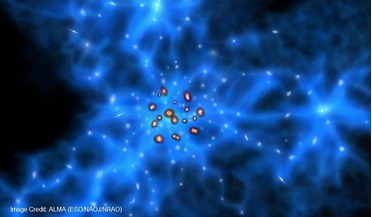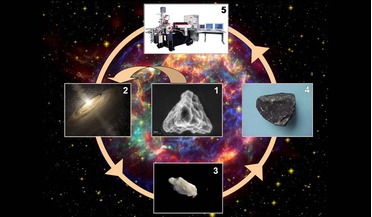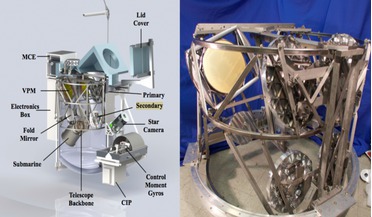 October 2025
Satellite technology - from operational challenges to strategic opportunities
October 2025
Satellite technology - from operational challenges to strategic opportunities
..., testing how materials and components will respond to radiation, thermal cycling and mechanical stresses before any hardware ...electronic systems remain functional in the space radiation environment. Advanced electromagnetic simulation tools can model...
 07 December 2015
Massive baby galaxies nestled in dark matter filaments found by ALMA
07 December 2015
Massive baby galaxies nestled in dark matter filaments found by ALMA
... them. Dust grains absorb starlight emitted by objects in the Universe and re-radiate this radiation at mid- to far-IR wavelengths. Telescopes that are sensitive to detecting this radiation typically have not had the resolution needed to pin-point...
 09 May 2016
Ancient silicate grains reveal histories of stardust in the Galaxy
09 May 2016
Ancient silicate grains reveal histories of stardust in the Galaxy
... a supernova and the other from a red giant star) and these were found to have evidence for radiation processing in space. "The chemical composition of the grains indicates they originally formed as crystals, but these grains...
 26 July 2016
Will PIPER be successful in confirming Inflation Theory?
26 July 2016
Will PIPER be successful in confirming Inflation Theory?
...oldest light in the Universe and it is the thermal radiation left over from the time of recombination i.e when ...but have so far been unsuccessful. Space is littered with radiation emitted from all types of sources and instruments searching for...